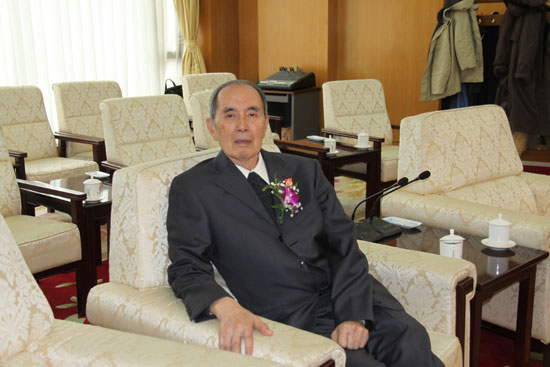Veteran translator offers insights on professionalism
- By Gong Yingchun
 0 Comment(s)
0 Comment(s) Print
Print E-mail China.org.cn, December 10, 2012
E-mail China.org.cn, December 10, 2012
At the second National Conference on Translation in Beijing on Dec. 6, Lin Wusun, former president of China International Publishing Group, put forward his suggestions for China's new generation of translators in an exclusive interview with china.org.cn.
 |
|
Lin Wusun, former president of China International Publishing Group (CIPG).[China.org.cn] |
Lin, 84, is known as one of the pioneers of translation in China. He explained that China's culture has much in common with foreign countries but also has differences. Translators should be familiar with Chinese history when translating classical Chinese works into foreign languages. Moreover, the translator should also master the culture in the target country he or she is translating for, Lin said.
"Many people regard translation just as linguistic skills, which is inaccurate from my point of view", said Lin. "Translators should have a good understanding of a wide range of knowledge such as history, law and economics", he added.
Lin said the Chinese translation community has made a great number of achievements but there are still improvements to be made in terms of translation teaching and practice. "In my opinion, the number of translators in China is large enough but not all of them are able to do good translation," he said.
Lin said it is a pity that criticism has not been popular in China's translation community. "I would extend my sincerest thanks to the one if he pointed out my mistakes, but in China, people do not like to do that due to the so-called 'face' phenomenon," he said, adding that translation criticism should be encouraged as long as it is constructive.
"It is a good habit for translators to review their translation which has already been polished. Don't be reluctant to spend time on translation — because I believe there is no best version, only better", Lin said. "Don't be afraid of making mistakes — [one's] translation skill can be improved by correcting [them]."
Lin commented that foreign translators also play an influential role in the rising prominence of Chinese literature on the world scene, as was confirmed by Chinese writer Mo Yan's recent Nobel Prize for Literature.
"Some people remain unconvinced that Mo's works have been translated by foreign translators, but I don't think [this is] humiliating because it doesn't mean that Chinese translators are not qualified for it. Foreign translators introduce Chinese culture to the world with vivid and powerful language," he said.





